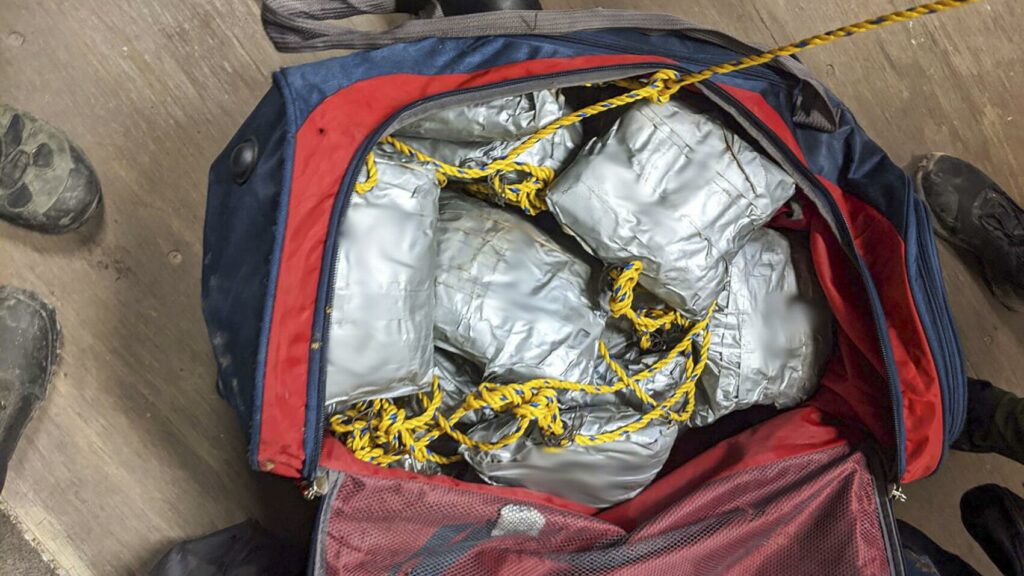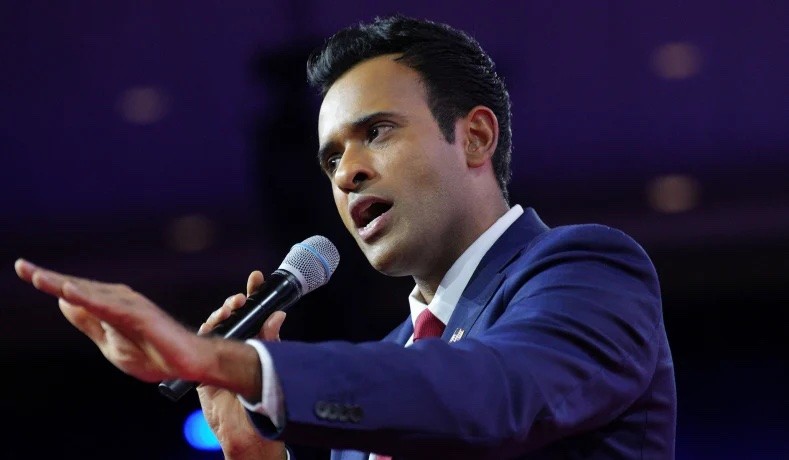The fentanyl crisis has left politicians searching for answers, with the Republicans in particular laying blame at the foot of Mexico and cartels. One novel approach being bandied about by the paleo wing of the GOP is potential military action against Mexican cartels.
Chief among the proponents of bombing Mexico are Trump and GOP presidential candidate Vivek Ramaswamy. The thrust of their argument is that the flow of fentanyl represents a war of sorts on Americans given that overdoses and their aftershocks on communities are wrecking our communities.
As a result, they say, our country needs to go after the perpetrators—the Mexican cartels. If Mexico doesn’t provide permission for us to do so, then, according to them, we are within our rights to proceed with unilateral military action.
This rhetoric not only demonizes Mexico and Mexicans writ large, but if it’s acted upon it would result in devastation without the benefit of significantly reducing fentanyl and substance abuse.
Too Many Overdoses
Trumpian politicians are right to be concerned about fentanyl’s scourge. Overdose deaths have been increasing since 1999, and sharply since 2019, with the recent increases in deaths coming overwhelmingly at the hands of the reaper that is fentanyl, according to the National Institute on Drug Abuse.

Even more disconcerting is CDC data detailing how people between 10 and 19 have experienced vast increases in overdose deaths between 2019 and 2021, with fentanyl and other illicit opioids overwhelmingly responsible for these tragedies. Axios polling shows that GOP voters view fentanyl and related opioids as the foremost public-health threat, while Democrats believe guns to be the most pressing threat to public health.
None of this is surprising given the nature of partisan messaging. But regardless of partisan priorities, national data and state public health departments express concern that this is indeed a major problem to be solved, especially given the fact that even in 2019 there were reports of how the U.S had the highest rate of overdose deaths for wealthy countries.
The Causes Of The Fentanyl And The Addiction Crisis
There’s a clear consensus that the jump in deaths is attributable to fentanyl and alternative synthetic opioids. Researchers point out that the problem is not so much that people are seeking out fentanyl as the fact that it’s laced into other illicit substances.
Base ingredients for fentanyl largely come from China, though India is also becoming a player, and are typically shipped to Mexico for final assembly. Given that it is a cheap and relatively reliable substitute that was used as a means of more efficiently supplying illegal substances, it does represent a supply problem in part. The demand side of the equation is at least equally important, though.
The causes of substance abuse are myriad and irreducible to single factors. The general view is that causes can be attributed to the individual (their trauma, psychological issues, and personality), environment, and the availability of substances.
Typically, substance abuse programs are focused on helping patients deal with past trauma and developing healthy coping mechanisms. The causal chain is still not entirely sturdy here, seeing as how there’s not conclusive proof that childhood trauma and neglect cause adult substance use.
That being said, there are social determinants of overall health–namely family, community, and society overall. Again, while establishing causality is an uphill battle, conditions like poverty, childhood trauma, and systemic racism are linked to substance abuse later in life.
What’s The Worst That Could Happen?
At this point in the U.S. empire, our military escapades have been comical failures. We have the world’s mightiest military, major means of propaganda, and yet have found ourselves bogged down in developing countries that have made Captain Queeg look like the epitome of military competence.
And yet at least people calling to take out the cartels aren’t proposing a full-scale invasion of a foreign country this time. Alas, something has been learned from the past, even if it still leads to ghoulish ends.

Instead of sending whole companies of soldiers and Marines into Mexico, Trump and friends have called for such actions as designating the cartels terrorists, and using special ops to take them out. All of this with or without Mexico’s consent. Even the entry into Pakistan to kill bin Laden is still widely considered legally dubious under international law.
The pitfalls would be legion. There’s the threat to our rapidly-diminishing reputation- countries like the BRICS are eschewing our hegemony and some are even discussing an end to the petrodollar, for example. Not to mention the ascendant role China is taking in Middle Eastern diplomacy in the wake of our Mesopotamian fumbles.
Leaving aside the sovereignty consideration and the fact that we would further deplete whatever reserves of good international will we have left, if we were to actually bomb Mexico, the bloodshed and border tensions would be apocalyptic. The country would be destabilized, and we would be decidedly less safe. Not to mention the economic effects of attacking a huge trade partner.
Plus, there’s the onset of “tranq” and new substances—the market will shift supply to meet demand, especially in light of DEA reports finding that it’s likely for supply to diversify in the future, meaning that if we bomb cartels or try to take them down some other way we’ll probably be playing whack-a-fentanyl-supplier.
What We Should Do Instead
Continuing to fund addiction treatment, making naloxone and medication-assisted treatment available as well as fentanyl test strips are all options public-health departments are taking on the demand side of the equation. None of this is a quick fix, but there are no quick fixes here.
Those calling to potentially invade Mexico likely aren’t serious, but their rhetoric further demonizes our southern neighbor and has the effect of continuing to use them as a convenient scapegoat for our biggest problems.
This is not only damaging to our relationship with Mexico, but also to our reputation, to Mexicans, and to Mexican Americans. And it defies fundamental notions that Americans hold dear, specifically hard work and personal responsibility.
If we want to solve the addiction crisis, we need to take responsibility for our fellow Americans and realize there aren’t any quick fixes. We just need to do the work.
Download The Daily Chela TV App
Download the new Daily Chela TV app on Apple IOS, Android, or Roku.












